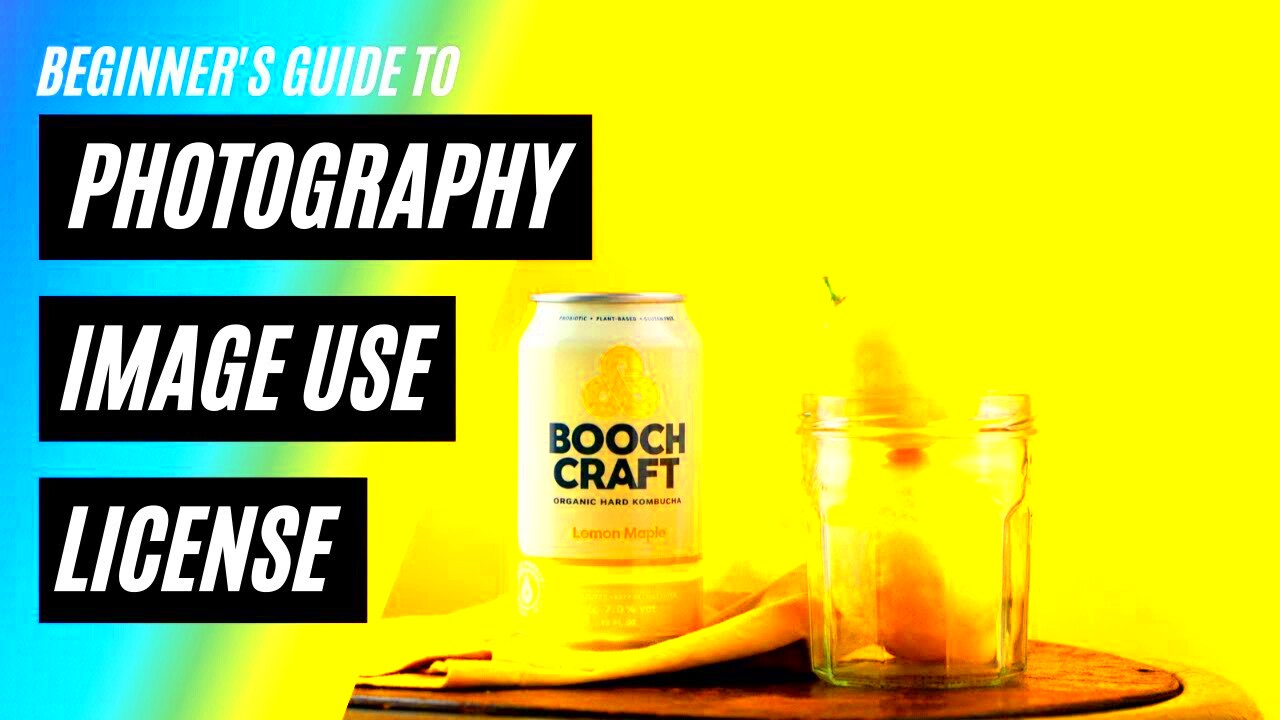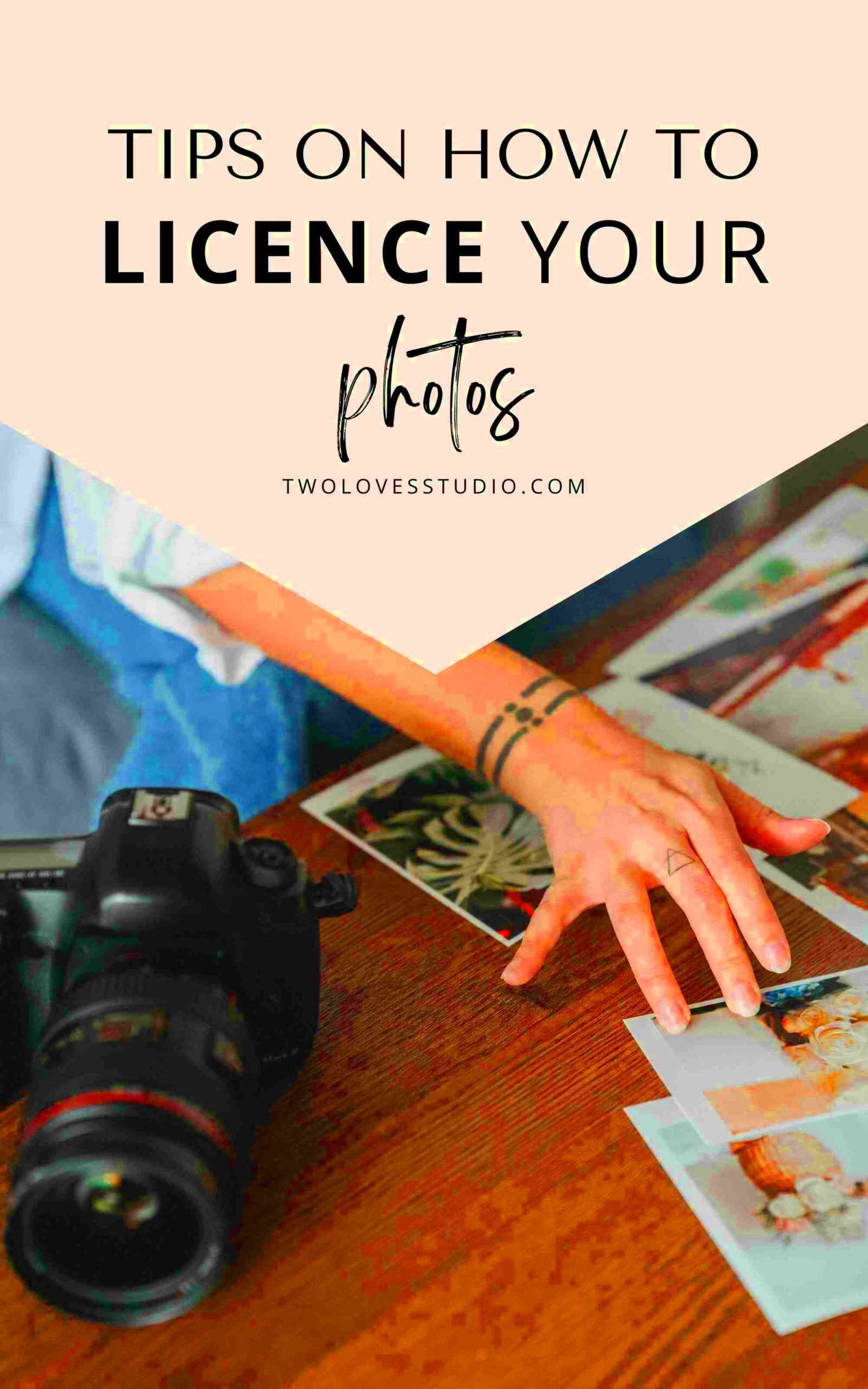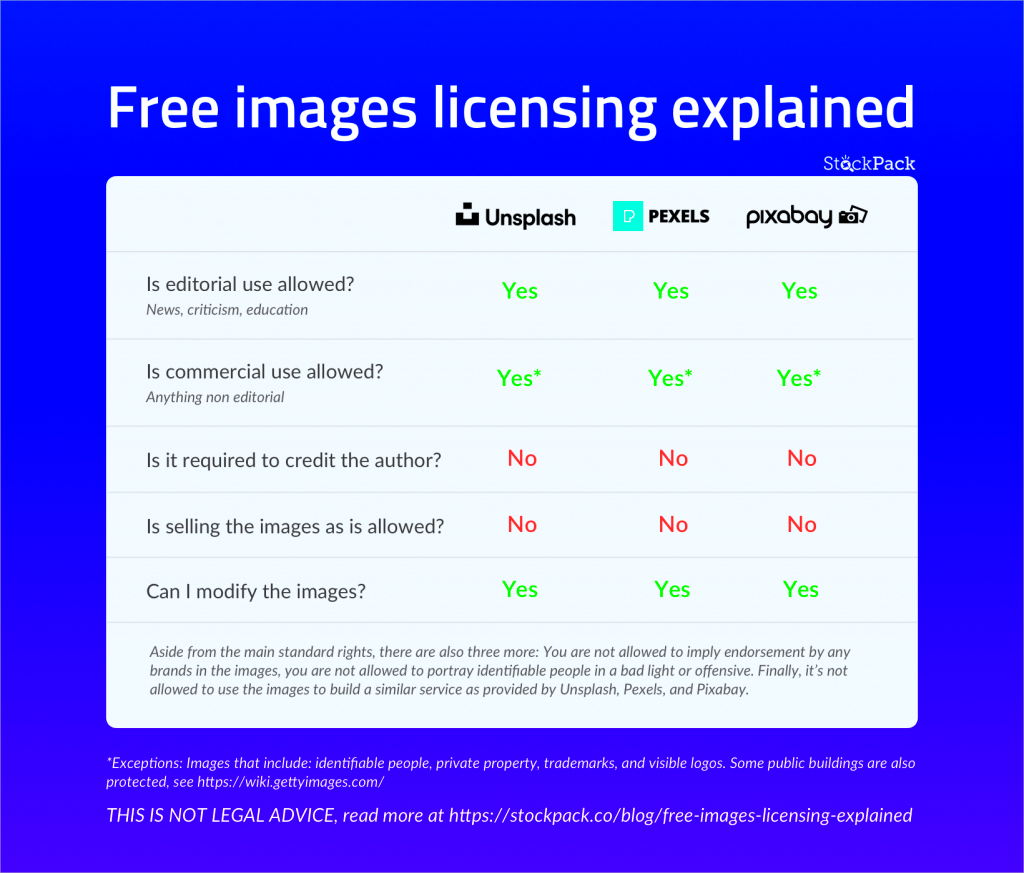When using images online, it's essential to understand the concept of image licensing. Licensing gives you the right to use an image in a specific way, and failing to do so can lead to legal complications. Whether you're creating content for a blog, social media, or any commercial project, knowing how to license an
By following the correct licensing procedures, you can legally use images without worrying about facing potential lawsuits. Licensing protects both the creator's rights and your ability to use the image as needed. This guide will help you understand the types of licenses available and how to choose the best one for your project.
Understanding Image Licensing Types

There are several types of image licenses, each with its own rules and restrictions. Here's a breakdown of the most common licenses you'll come across:
- Royalty-Free License: With a royalty-free license, you pay a one-time fee and can use the image multiple times without paying additional royalties. This is the most common license for stock images.
- Rights-Managed License: This type of license gives you exclusive usage rights for a specific period, location, and purpose. It's typically more expensive than royalty-free images but offers more control.
- Creative Commons License: Images under a Creative Commons license can often be used for free, but there are conditions, such as providing attribution to the creator. Some licenses allow for commercial use, while others don't.
- Editorial Use License: This license allows you to use the image only for non-commercial, editorial purposes such as news articles or blogs. Commercial use is prohibited.
Each license type serves a different purpose and can affect how you use the image. Be sure to read the terms before using any image to avoid unexpected restrictions.
Also Read This: Ultimate Guide to Making Shawarma at Home
How to Choose the Right Image License

Choosing the right image license depends on how you intend to use the image and your budget. Here are some key factors to consider:
- Usage Purpose: Are you using the image for personal, commercial, or editorial purposes? Some licenses restrict commercial use, so be clear about your intentions.
- Image Duration: How long do you need to use the image? Some licenses are valid for a specific period, while others offer lifetime usage.
- Geographical Scope: Do you plan to use the image in a specific country, or globally? Certain licenses may limit usage to specific regions.
- Budget: Licensing costs can vary widely. Royalty-free licenses are often more affordable, but if you're seeking exclusivity, a rights-managed license might be worth the extra cost.
- Attribution Requirements: Some licenses, especially Creative Commons, require you to give credit to the image creator. Be sure to check if attribution is necessary before using the image.
To help you decide, here’s a simple table comparing the most common licenses:
| License Type | Usage | Cost | Restrictions |
|---|---|---|---|
| Royalty-Free | Unlimited usage | One-time fee | None (within limits) |
| Rights-Managed | Exclusive, limited usage | Varies (higher cost) | Limited by time, location, or purpose |
| Creative Commons | Free with attribution | Free | Attribution, non-commercial use (varies) |
| Editorial Use | Non-commercial use only | Varies | Cannot use for commercial purposes |
By considering these factors, you can choose the most suitable image license for your project and avoid potential issues down the road.
Also Read This: 123RF vs 500px: Selecting the Right Platform for Selling Photos
Steps to License an Image Legally

Licensing an image legally ensures that you’re respecting the creator’s rights while avoiding legal trouble. It’s a straightforward process, but it’s important to follow each step carefully. Here’s how to license an image the right way:
- Choose a Source: Start by finding a reliable website or platform that offers licensed images. There are many stock image sites available, but make sure they’re reputable and provide clear licensing terms.
- Review the License Terms: Once you’ve selected an image, review the licensing terms carefully. Each image will have specific rules, such as usage limits, attribution requirements, and whether or not you can use the image for commercial purposes.
- Purchase or Download the Image: Depending on the license type, you might need to purchase the image or simply download it for free (e.g., Creative Commons). If purchasing, you’ll usually receive a license certificate.
- Check for Attribution Requirements: Some licenses, especially Creative Commons, require you to provide attribution to the image creator. If required, ensure you credit the creator as outlined in the license agreement.
- Keep a Record: It’s a good idea to keep a record of your image license. This could include a copy of the licensing agreement, proof of payment (if applicable), and a link to the image's page. This helps in case there’s ever a dispute about your image usage.
By following these steps, you can ensure that you're using images legally, avoiding potential issues with copyright infringement.
Also Read This: How to Use a DSLR Camera for Beginners with Dailymotion Video Tutorials and Tips
Where to Find Licensed Images

Finding legally licensed images for your project is easier than ever, thanks to various online platforms that offer a wide range of options. Below are some great places to find licensed images:
- Stock Image Websites: Sites like Shutterstock, Adobe Stock, and Getty Images provide high-quality images with clear licensing terms. These platforms offer both royalty-free and rights-managed images for various purposes.
- Creative Commons Platforms: Platforms like Flickr and Unsplash host a variety of Creative Commons images that are free to use, often with certain attribution requirements. Make sure to filter results by license type.
- Public Domain Resources: Websites such as Pexels, Pixabay, and Public Domain Archive offer free images that fall under the public domain or have permissive licenses, allowing for unrestricted use.
- Artist Communities: If you’re looking for unique, artist-created images, platforms like DeviantArt offer a mix of free and paid licenses, with the added benefit of connecting with the creator directly.
Each platform may offer different licensing models, so always make sure to read the licensing details before using any image.
Also Read This: how to download adobe stock for free
What Happens if You Use an Unlicensed Image
Using an unlicensed image may seem like a quick solution, but it can lead to serious consequences. Here’s what could happen if you use an image without proper licensing:
- Legal Consequences: The creator or copyright holder has the right to take legal action against you for using their image without permission. This could result in costly lawsuits and settlements, especially if the image is used for commercial purposes.
- Financial Penalties: If you are found guilty of copyright infringement, you may have to pay hefty fines. In some cases, damages can be substantial, depending on the nature of the infringement and whether the image was used for profit.
- Reputation Damage: Getting caught using unlicensed images can damage your reputation. Businesses, brands, and content creators rely on trust, and being accused of copyright infringement can hurt your credibility.
- Content Removal: Many platforms (like social media sites and websites) actively monitor for unauthorized content. If you use an unlicensed image, it may be flagged and removed, potentially causing disruption to your project or content.
To avoid these issues, always ensure that you have the proper license for the image before using it in your work. It's far safer to invest in licensed images than to risk facing legal trouble.
Also Read This: How to Buy Getty Images Cheap Tips and Tricks for Finding Affordable Getty Stock Photos
Tips for Managing Your Image Licenses
Managing your image licenses properly is key to ensuring that you’re always compliant with the terms and avoiding legal troubles. By staying organized and keeping track of your licenses, you can ensure smooth usage and prevent any issues down the line. Here are some practical tips to help you manage your image licenses effectively:
- Keep Detailed Records: Store all licensing information, including the license type, the terms, the image source, and the date of purchase or download. Consider using a spreadsheet or digital storage system to track this information.
- Set Calendar Reminders: Many image licenses are time-limited or require periodic renewals. Set reminders on your calendar for when the license is about to expire, especially for rights-managed licenses.
- Review the License Terms Regularly: Some licenses have specific restrictions or allowances that may not be immediately obvious. Take the time to review the terms periodically to ensure you’re not inadvertently violating the agreement.
- Organize by Project: If you use multiple images for different projects, it can be helpful to organize your licenses by project. Create folders or files that include the images and their corresponding licensing details for easy access.
- Understand License Transferability: Some licenses are non-transferable, meaning you can’t sell or transfer the image to someone else. Make sure you understand the scope of your rights before sharing or selling any licensed image.
By following these tips, you’ll be better prepared to manage your image licenses and avoid legal issues while keeping your projects running smoothly.
Also Read This: How to Enlarge a Purchased Adobe Stock Image
FAQ
Below are answers to some common questions about image licensing that many people have:
- Do I need a license for every image I use? Yes, you need a license for any image that is copyrighted. This includes images found on the web, social media, and even some stock photos. If the image creator hasn’t explicitly released it for free use, you’ll need to obtain a license.
- Can I use an image with a Creative Commons license for commercial purposes? It depends on the specific type of Creative Commons license. Some Creative Commons licenses allow commercial use, while others restrict it. Always check the license terms to ensure that commercial use is permitted.
- What happens if I don’t properly attribute a Creative Commons image? If you fail to provide proper attribution for an image that requires it, you could be in violation of the license agreement. This could lead to the image being removed and potential legal action.
- Can I edit an image I’ve licensed? This depends on the license type. Some licenses allow modifications, while others prohibit altering the image. Be sure to review the terms before editing or altering the image in any way.
- Are free images always safe to use? Not necessarily. Some "free" images still have restrictions, and they may require attribution or be limited to non-commercial use. Always check the license terms to avoid surprises.
Conclusion
Licensing images properly is crucial to staying compliant with copyright laws and avoiding legal consequences. By understanding the different types of licenses, following the proper steps to obtain and manage licenses, and knowing where to find trusted sources, you can use images confidently in your projects. Always take the time to review license terms carefully and keep organized records. Remember, the cost of acquiring a license is far less than the potential legal costs of using unlicensed images. By doing so, you’ll protect both your work and the rights of the image creators.

 admin
admin








